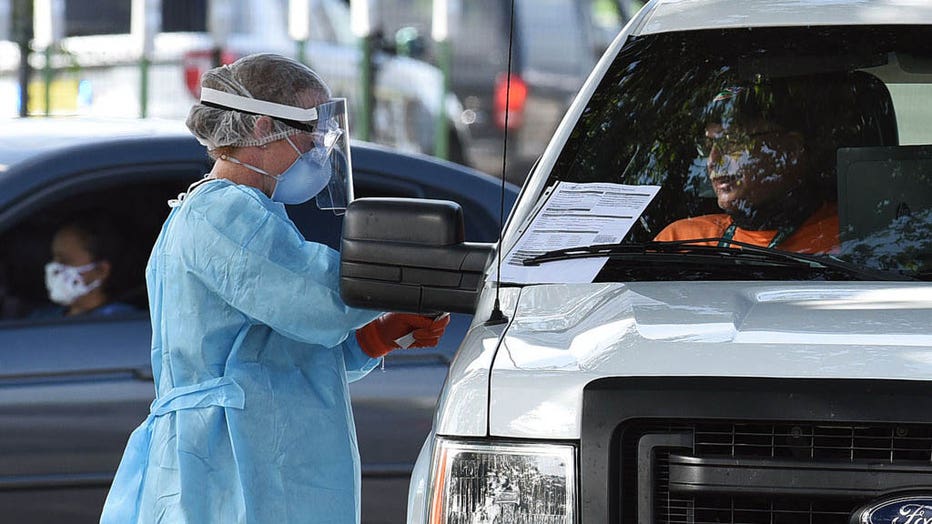'Don’t be deluded': Doctor explains how negative COVID-19 test can lead to false sense of security
MELBOURNE, Australia - As countries around the world ramp up testing and contact tracing in an attempt to slow the spread of the novel coronavirus, a doctor in Australia pointed out that COVID-19 tests can sometimes lead to a false sense of security for those who test negative.
Dr. Eric Levi, an otolaryngologist and head and neck surgeon based in Melbourne, Australia, noted on Twitter how people who get tested “can still be exposed right after the test.”
“You can get tested on Monday. Be exposed to covid on Tuesday. Get a negative result on Wednesday. Go out to meet people on Thursday. Be mildly symptomatic on Friday (‘But I was negative’). Then get tested on Saturday. Only to be positive on Monday,” Levi wrote July 12 on Twitter.

People are tested for COVID-19 at a drive through testing site on July 8, 2020 in Orlando, Florida. (Photo by Paul Hennessy/NurPhoto via Getty Images)
A negative result for a COVID-19 viral test means the person was only negative at the time of testing, the U.S. Centers for Disease Control and Prevention states on its website.
“Don’t be deluded that once you’re negative you’ll always be negative. You can still be exposed right after the test,” Levi added.
Public health officials have also stressed the possibility of false negative COVID-19 tests, meaning the person who was tested actually had become infected with the virus, but the test did not register as positive.
A study in May by researchers at Johns Hopkins Medicine found that testing people for SARS-CoV-2, the virus that causes COVID-19, too early in the course of their infection is likely to result in a false negative test.
"A negative test, whether or not a person has symptoms, doesn't guarantee that they aren't infected by the virus," said Dr. Lauren Kucirka, an obstetrics and gynecology resident at Johns Hopkins Medicine. "How we respond to, and interpret, a negative test is very important because we place others at risk when we assume the test is perfect. However, those infected with the virus are still able to potentially spread the virus."
Levi noted that if a person tests negative, they still need to maintain all recommended health precautions — such as wearing a face covering, maintaining physical distance between others and hand washing.
“You’re not free to do what you used to do before COVID,” he added.
RELATED: Florida Department of Health says some labs have not reported negative COVID-19 results
This story was reported from Cincinnati.

